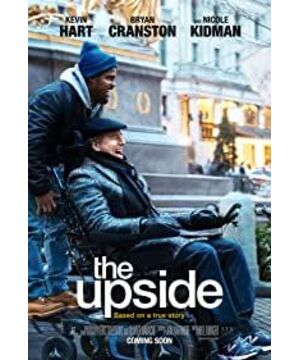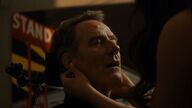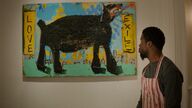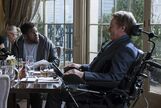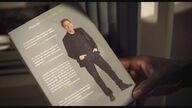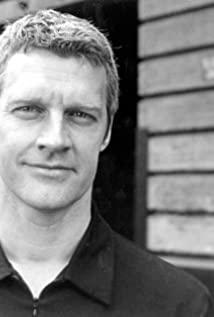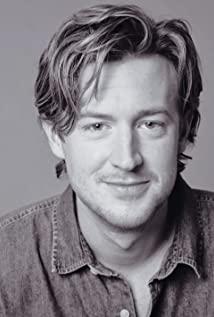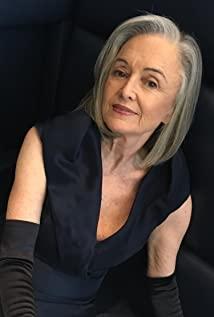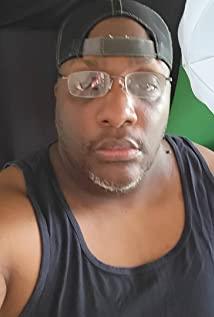Everyone is not an island. A person must be the strongest island in the world before he can become a part of the mainland. —— Ernest Miller Hemingway
Commercial films that collide between the bottom and the top have been everywhere in the past few decades. Or like a Disney princess movie, the poor girl is loved by the prince and becomes a member of the upper class; or from the standpoint of one party to observe and participate in the life of the other party, and finally achieve the perfect ending from conflict to reconciliation, from opposition to unity.
There are exceptions to this pattern in "Green Book" and "Unreachable". Although they are still happy comedy endings, the film is no longer satisfied with the accidental intersection of two parallel worlds, but with a very strong The method allows one world to be superimposed on the other, to explore how two people who are almost impossible to have an intersection can intervene, rely on each other, and achieve symbiosis. The relationship between the dual protagonists of "Green Book" and "Unreachable" is more complicated. They are in a sharp contrast of strength and weakness on a certain level, such as social status, but the narrative is flipped to another level, and the strong and weak roles follow. A one-hundred and eighty degree conversion has taken place.
The American version of "Unreachable" faithfully reproduces the main story of the original French version, but the characters and lines are more American. Even if you have seen the French version, see the same plot and hear those American humor. Still can't help but laugh.
According to Dell's evaluation criteria, Philip is richer than Jay-z. He owns a high-rise mansion that overlooks the entire city, and a row of his collection of luxury cars is parked in the parking lot. He can easily buy a painting in the art gallery for $80,000. In the material world, he is undoubtedly the person at the top of the pyramid.
Dale is black and his native family is dilapidated. He was sluggish, unwilling to work, and went to jail several times for theft. His son was extremely disappointed in him, and his wife left because of his irresponsibility. In order to give an explanation to the bail officer, he must attend three job interviews and collect the signatures of the three interviewers. Under the worldly standards, he was a complete loser.
But in the world beyond the material, Philip is a weak and helpless man. He had no children. His wife passed away in an accident. Although he survived, he was paraplegic. He needed help from others for food and drink, and the mansion became a prison. Dale is at the bottom, but he has a healthy physique, a smart son and a beautiful wife (despite his divorce), and he still has freedom of movement after several imprisonment. He had nothing except what Philip had lost.
Such a role setting makes misery and luck, the strong and the weak, rich and poor, freedom and bondage the concepts of unity of opposites. These two people are also like these antonyms, clashed with each other and entangled with each other at the same time. To some extent, Dale and Philip are both outcasts of society, they have lived themselves as an island.
The interview naturally becomes the window through which these two worlds are connected. Among a group of white candidates who are good at speaking, the cynical Dell looks so different. Why did he apply for the job successfully? In Yi Fang's words, "Because you are the worst of all."
A strong self-destructive mood drove Philip to choose Dell. He was tired of the people around him taking care of him like walking on thin ice, tired of their curiosity, tired of the same ceiling when he opened his eyes every morning. Hiring Dell might inject a bit of freshness into the stagnant life, perhaps better-this rough-and-tagged black man might be able to help him see God earlier.
Dell only collected two signatures. There are two paths before him, either to return to prison or accept the job. The only remaining signature became a small organ in the fate of the two of them. Pulling this mechanism, the train of destiny drove on another hidden route in an absolute manner.
As expected, the two collided and ran into each other until they developed a sincere friendship. Philip is no longer tired of the world, and has rekindled expectations for life. Dale also bid farewell to the past and became a responsible father. The two redeemed each other's lives in the process of getting along. "Unreachable" does not avoid these routines. The screenwriter readily accepts this familiar development path and fills the story frame with rich and credible details. Therefore, even if the audience is familiar with the direction of the story, they will still be moved by the real and perceptible daily details.
The title is ambiguous. For the two protagonists, what is out of reach is not only the world in which the other party lives, but also the true emotions in their hearts. Philip is sensitive and fragile, like an oyster that locks himself in a shell. Dale is reckless and rude, but retains delicate emotions and simple goodwill-when he feels Philip's trust, he tries to quietly return the stolen book again and again. After several rounds of such clashes, a bridge was finally built between the two islands, and Philip's shell was finally pried open.
But before reaching a happy ending, the protagonist has to go through several setbacks. Unlike the original version, the US version gave up the plot of happily living together after the pen pal met, and instead rewritten this meeting into a "Waterloo" by Philip. Just when Philip was fantasizing that life was about to usher in spring again, the pen pal confessed her concerns about Philip's physical condition. The frustration of love pushed Philip into the abyss, and the self-confidence he had built up was instantly disintegrated. He drove Dell away, pushed Yi Fang away, cut off the connection with the world, and became an island again.
After the initial mutual temptation, and then to Chu Jian’s simple friendship, it was not until this short "breakup" that Philip and Dale truly became friends of life and death. Only Dale knew how to make Philip laugh, so he returned to Philip and took Philip on a journey of reconciliation with the past. After putting on a ventilator for Philip that late at night, Dale rescued him for the second time.
The subtle attraction between people is the most fascinating part of the film. While Dale and Philip attracted each other, they also gained Yi Fang's recognition and acceptance. This Harvard-graduated, unsmiling upper-class elite, finally willing to let go of her restraint and dance in pop music, she saw another possibility in the serious world from Philip.
Unlike Philip and Dale's emotional changes, there is a lot of blank space in the relationship between Philip and Yifang. The film did not give a clear answer, but it is very likely that Yi Fang always had admiration for Philip, and was ashamed to express his affection because of his introverted personality. Dell once asked about her experience. Yi Fang said that at first he worked for Philip, then left and went through a short marriage. After hearing that something happened to Philip, he came back here again. In short lines, Nicole Kidman uses micro-expressions to convey the emotions of the character's more complex background.
At the end of the film, the subtitles said this sentence: "Dale and Philip have maintained a close friend relationship." This sentence is more magical than "The film is adapted from a true story." When you know that those heart-warming stories are still being played out of the screen, those moving emotions last longer than the time span of the movie's narrative, as if you have received a great emotional comfort.
View more about The Upside reviews


